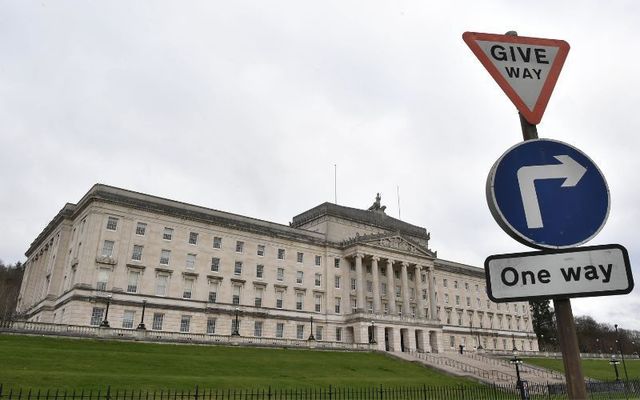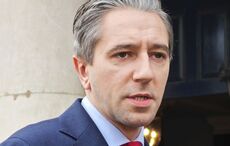The Windsor Framework was formally adopted today, Friday, March 24, during a meeting of the Withdrawal Agreement Joint Committee in London.
The Joint Committee has adopted a decision laying down the arrangements relating to the Windsor Framework.
This decision covers, amongst others, the arrangements for the movement of goods not at risk of entering the Single Market, the Stormont Brake, and VAT and excise-related solutions, including the establishment of the Enhanced Coordination Mechanism for VAT and excise.
A series of recommendations, joint declarations and unilateral declarations have also been published, clarifying how different aspects of the Windsor Framework will work in practice.
The EU and the UK say they will now work closely together, in good faith, to ensure the full implementation of the Windsor Framework, including the full implementation of safeguards and facilitations.
"Signed and sealed," European Commission Vice-President Maroš Šefčovič said of the Windsor Framework on Friday.
? Signed and sealed.
The Joint Committee formally adopts the Windsor Framework, the result of shared travel and destination. Thank you @JamesCleverly.
People in NI will benefit from lasting certainty. ???? will exploit the full potential of the TCA.
? https://t.co/TCUvkuyBHx pic.twitter.com/e4StRIET2C
— Maroš Šefčovič?? (@MarosSefcovic) March 24, 2023
Šefčovič and UK Foreign Secretary James Cleverly said in a joint statement on Friday: "The Joint Committee welcomed the positive approach of both sides and adopted the new arrangements set out in the Windsor Framework.
"These arrangements address, in a definitive manner, the challenges in the operation of the Protocol on Ireland/Northern Ireland over the last 2 years and the everyday issues faced by people and businesses in Northern Ireland, while supporting and protecting the Good Friday or Belfast Agreement in all its parts, and protecting the integrity of the European Union’s Single Market, and Northern Ireland’s place in the United Kingdom’s internal market.
"Both sides agreed to work together intensively and faithfully to implement all elements of the Windsor Framework.
"The United Kingdom and European Union also reaffirmed their intent to use all available mechanisms in the Framework to address and jointly resolve any relevant future issues that may emerge."
Šefčovič said: "Today is an important moment, allowing us to open a new chapter in EU-UK relations."
He added that the Windsor Framework "will provide people and businesses in Northern Ireland with lasting certainty and predictability, while also protecting the integrity of the EU’s Single Market.
"The full implementation of the Windsor Framework is now our joint priority. If the 25 years since the Good Friday (Belfast) Agreement were about peace, the next 25 years should be about helping Northern Ireland complement that peace with increased prosperity."
BBC noted that in the absence of a first and deputy first minister for Northern Ireland, Jayne Brady, the head of the Northern Ireland Civil Service, was the representative from Northern Ireland at Friday's Joint Committee meeting.
The Windsor Framework, meant to finally resolve the longstanding Northern Ireland Protocol dilemma, was first announced by UK Prime Minister Rishi Sunak and European Commission President Ursula von der Leyen on February 27.
The so-called Stormont Brake, a key part of the Windsor Framework that would give members of Northern Ireland's Assembly a formal process to flag concerns about new or amended EU laws, won overwhelming support in the UK House of Commons on March 22.
Among those who voted against it included Northern Ireland's Democratic Unionist Party (DUP) and several Conservatives, including former UK Prime Ministers Boris Johnson and Liz Truss.
Ahead of Wednesday's vote, Sir Jeffrey Donaldson, head of the DUP, said his party would be voting against the measure, adding that "there is not a sustainable basis at this stage to enable us to restore Stormont."
The DUP has been refusing to enter power-sharing at Stormont for close to a year as a form of protest against Protocol issues.
On Friday, Michelle O'Neill, the vice president of Sinn Féin which last year became the biggest party in Northern Ireland for the first time ever, said: “Now is the time to move forward.
"The negotiation is over, and the deal is done.
“We have a big opportunity to strengthen our economy and create good jobs by seizing the competitive advantage that unique access to the EU and British markets offers us.
“Let’s get back to business. People can’t wait any longer."




Comments